By Dr. Sneha Dokrimare | Consultant Ophthalmologist | Dokrimare Multispeciality Hospital

Common Eye Problems After 40. As we grow older, our body naturally undergoes many changes – and one of the most commonly affected areas is our vision. People over the age of 40 often begin to notice changes in their eyesight. Whether it’s trouble focusing on close objects, dryness, blurry vision, or even glare at night, these symptoms are signs that your eyes are aging.
In this comprehensive blog, we will discuss the common eye problems after 40, their symptoms, causes, prevention tips, and treatment options. Authored by Dr. Sneha Dokrimare, Consultant Ophthalmologist at Dokrimare Multispeciality Hospital, this guide aims to raise awareness and promote timely eye care for adults.
Why Eye Health Deteriorates After 40
From the age of 40, the eyes undergo structural and functional changes. The natural lens loses flexibility (a condition known as presbyopia), tear production declines, and the risk of certain eye diseases increases.
Furthermore, systemic health issues such as diabetes, hypertension, and cholesterol problems that are more common in middle-aged adults also negatively impact eye health. This makes regular eye checkups after 40 essential.
1. Presbyopia (Age-Related Farsightedness)
Keywords: presbyopia after 40, age-related vision changes, reading glasses for 40+
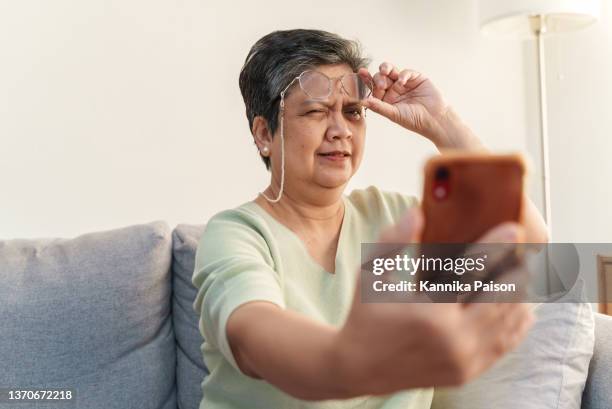
Overview:
Presbyopia is a common condition that typically begins in the early to mid-40s. It affects the eye’s ability to focus on nearby objects.
Symptoms:
- Difficulty reading small text
- Eye strain while using digital screens
- Headaches when reading or doing close-up work
Treatment:
- Over-the-counter reading glasses
- Bifocal or multifocal lenses
- Contact lenses for presbyopia
- Refractive surgery in select cases
2. Dry Eye Syndrome
Keywords: dry eye in adults, symptoms of dry eyes, treatment for dry eyes after 40
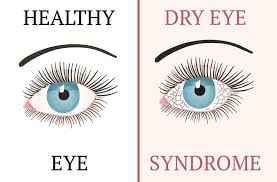
Overview:
Dry eyes occur due to decreased tear production or poor tear quality, both of which become more common after age 40.
Symptoms:
- Burning or stinging sensation
- Eye redness
- Gritty or sandy feeling
- Blurred vision, especially after screen use
Treatment:
- Artificial tears or lubricating eye drops
- Warm compresses to stimulate tear glands
- Omega-3 supplements
- Punctal plugs in chronic cases
3. Cataracts
Keywords: early signs of cataracts, cataract surgery, clouded vision over 40
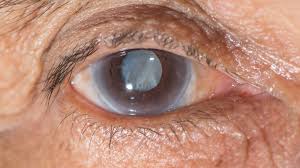
Overview:
Cataracts occur when the lens of the eye becomes cloudy, leading to vision impairment. Although common after age 60, early symptoms can begin in the 40s.
Symptoms:
- Blurry or foggy vision
- Sensitivity to light and glare
- Halos around lights at night
- Fading of colors
Treatment:
- Regular monitoring during check-ups
- Cataract surgery with intraocular lens implantation when vision becomes affected
4. Glaucoma
Keywords: glaucoma after 40, eye pressure monitoring, optic nerve damage
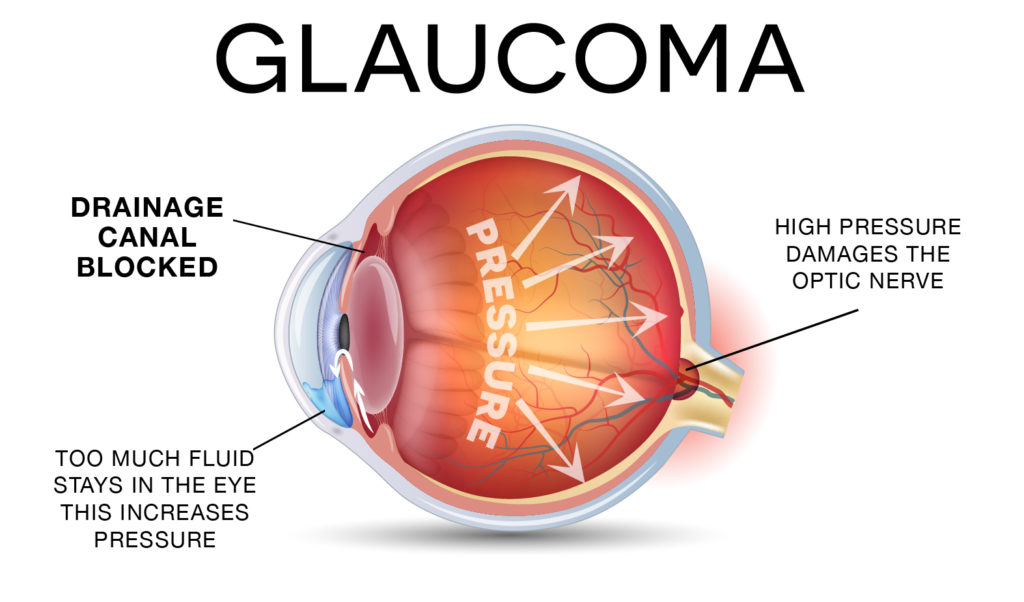
Overview:
Glaucoma is a group of eye diseases that damage the optic nerve, often linked to high intraocular pressure. It can lead to permanent vision loss if undiagnosed.
Symptoms:
- Often symptomless in early stages
- Gradual loss of peripheral (side) vision
- Tunnel vision in advanced stages
Treatment:
- Eye pressure-lowering drops
- Laser procedures
- Surgical intervention
Prevention:
- Annual glaucoma screening after 40, especially if there’s a family history
5. Age-Related Macular Degeneration (AMD)
Keywords: AMD symptoms, central vision loss, macular degeneration treatment

Overview:
AMD affects the central part of the retina (macula), responsible for detailed vision. It is one of the leading causes of vision loss in older adults.
Symptoms:
- Difficulty seeing fine details
- Straight lines appearing wavy
- Dark or blurry spot in the center of vision
Treatment:
- Anti-VEGF injections for wet AMD
- AREDS nutritional supplements for dry AMD
- Low-vision aids and vision therapy
6. Diabetic Retinopathy
Keywords: diabetic eye disease, diabetes and vision, retina damage diabetes
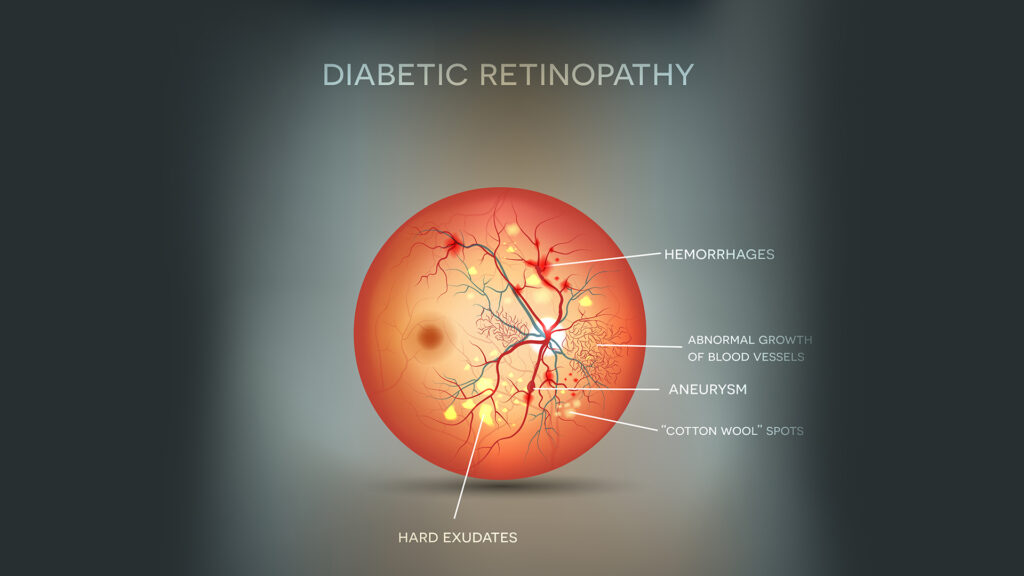
Overview:
People with diabetes are at risk of damage to the retina’s blood vessels, known as diabetic retinopathy. Regular eye exams are crucial for early detection.
Symptoms:
- Spots or floaters in vision
- Blurred or fluctuating vision
- Vision loss in advanced stages
Treatment:
- Laser photocoagulation
- Intravitreal injections
- Tight glucose and blood pressure control
7. Floaters and Flashes
Keywords: eye floaters, flashes of light, retinal detachment symptoms

Overview:
Floaters are small specks or strings that drift across your field of vision. Flashes may occur when the vitreous gel pulls on the retina.
Symptoms:
- Seeing spots, cobwebs, or strings
- Sudden light flashes
- A dark shadow or curtain over part of vision (medical emergency)
Treatment:
- Observation for mild floaters
- Immediate treatment for retinal tear or detachment
8. Computer Vision Syndrome (CVS)
Keywords: computer eye strain, digital eye fatigue, screen time and eye health

Overview:
Prolonged use of computers, smartphones, and tablets can cause eye strain, especially in people over 40.
Symptoms:
- Headaches
- Dry eyes
- Blurry vision
- Neck and shoulder pain
Treatment:
- Follow the 20-20-20 rule (every 20 minutes, look 20 feet away for 20 seconds)
- Adjust screen brightness
- Use anti-glare glasses and proper lighting
9. Allergic Conjunctivitis
Keywords: eye allergies, itchy eyes, allergic conjunctivitis treatment
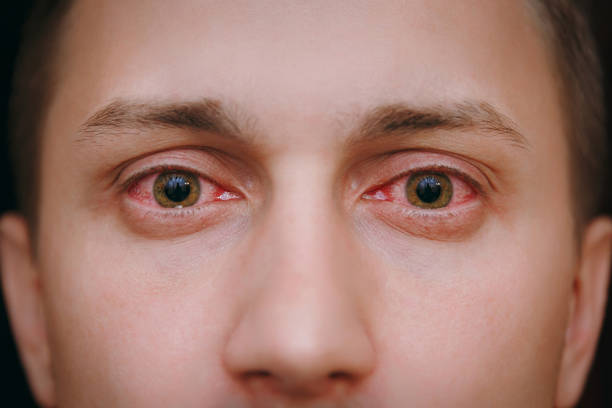
Overview:
Age does not prevent allergies. Many individuals continue to experience seasonal or chronic eye allergies into their 40s and beyond.
Symptoms:
- Red, itchy, watery eyes
- Puffy eyelids
- Sensitivity to light
Treatment:
- Antihistamine eye drops
- Avoid allergens (dust, pollen)
- Maintain eye hygiene
10. Ptosis (Drooping Eyelid)
Keywords: eyelid drooping, ptosis in adults, cosmetic eye surgery
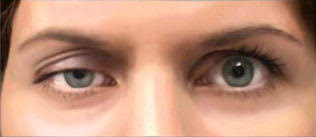
Overview:
Ptosis refers to the drooping of the upper eyelid, which can interfere with vision and appearance.
Symptoms:
- Drooping eyelid on one or both eyes
- Eye fatigue
- Obstructed vision in severe cases
Treatment:
- Ptosis correction surgery (blepharoplasty)
- Cosmetic and functional improvement
Eye Health Tips After 40
Keywords: eye care tips after 40, prevent vision loss, protect eyesight
- Get annual comprehensive eye exams
- Maintain blood sugar, blood pressure, and cholesterol
- Quit smoking to prevent AMD and cataracts
- Eat eye-healthy foods (leafy greens, fish, carrots)
- Wear UV-protective sunglasses outdoors
- Stay hydrated and reduce screen time
When to Visit an Eye Specialist
Visit an ophthalmologist if you experience:
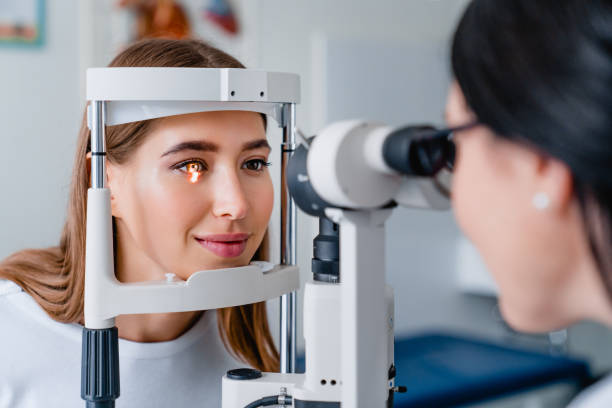
- Sudden vision changes
- Eye pain or discomfort
- Flashes or floaters
- Difficulty reading
- Frequent headaches with eye strain
Advanced Eye Care at Dokrimare Multispeciality Hospital
At Dokrimare Multispeciality Hospital, we provide:
- State-of-the-art diagnostic and surgical equipment
- Experienced ophthalmologists like Dr. Sneha Dokrimare
- Personalized treatment plans for cataracts, glaucoma, dry eye, AMD, diabetic eye disease, and more
We are committed to offering the best eye care for patients over 40 with compassion and precision.
Final Words from Dr. Sneha Dokrimare
“Your vision is precious. Don’t wait for problems to start. After 40, regular eye checkups and healthy habits are the key to protecting your eyesight for the years ahead.”
Book an Appointment Today!
Call: +919527282994 I 07184256063
Visit: www.dokrimarehospital.com
Dokrimare Multispeciality Hospital – Your Vision, Our Mission.

